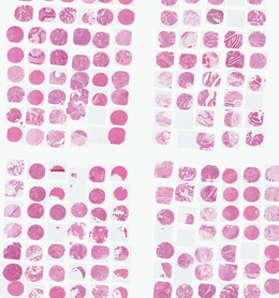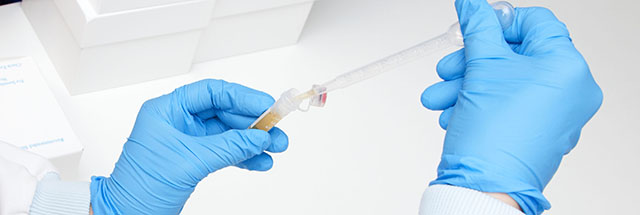Haematological Malignancies Virtual Institute

The investigation of haematological malignancies (cancers of the blood, bone marrow and lymph nodes) represents a significant area of clinical and research activity. Our understanding of how and why blood cancers develop is underpinned by basic research into how blood cells develop normally and what happens at the earliest stage of malignancy. Research is closely aligned with clinical treatment so that patients receive the best diagnostic and therapeutic options based on their particular cancer.

There are currently 13 group leaders, many of whom are clinically qualified, working together as part of this consortium. Their research is focused on studying novel therapeutic strategies based on epigenetic regulation, mechanisms of transcriptional and translational dysregulation, novel diagnostic tools, and other aspects of regulation in haematological malignancies. These investigators include many groups across the Cambridge Cancer Centre including the Cambridge Institute for Medical Research, the Wellcome Trust Sanger Institute and the MRC Laboratory of Molecular Biology.
Myeloproliferative disorders are a group of diseases in which the bone marrow makes too many red blood cells, white blood cells, or platelets. Researchers have discovered that many people with these disorders have a particular genetic mutation affecting an enzyme, called JAK2. This enzyme has an important role for carrying messages within cells but, in the case of these disorders, the mutation causes too many new blood cells to be produced. The finding means that patients can be offered different treatment depending on whether or not their disease has been caused by the mutation.
The Cambridge Blood and Stem Cell Biobank is a tissue bank housing samples from both patients with haematological malignancies and normal individuals. Over 8,000 blood and bone marrow-derived or biopsy samples from patients with haematological malignancies and around 2000 healthy samples have been collected and distributed. The biobank processes cells, proteins, nucleic acids and serum from the samples for use in world leading laboratory and clinical research; as well as providing specialist cell handling technical services for research partners in Cambridge, the UK and around the world.
A large clinical trial of over 1,000 patients with a myeloproliferative disorder called essential thrombocythaemia is taking place to assess the efficiency of different combinations of drug treatment.

The Division of Molecular Histopathology at Addenbrooke's Hospital is a national referral centre for haematological malignancies. This service is being expanded to provide next generation DNA sequencing for both haematological and epithelial cancers. This will support the testing of circulating tumour DNA (ct DNA) in patients using novel sequencing strategies.


















